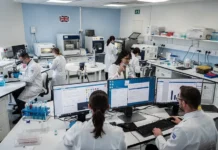The UK Medical Research Council (MRC) has granted a fund of £6m for three new research programmes, as part of a £60m investment.
The investment will be used to study biological mechanisms of Parkinson’s disease and reduced immunity in the elderly, as well as the way the gut and brain interact to influence addictive behaviour.
UK Life Sciences Minister George Freeman said: “Understanding how the disease really works in humans is crucial in generating new treatments and medicines.
“The more we discover about disease, the more we know how and why different patients respond in different ways to different diseases and drugs: unlocking a new age of preventative and personalised medicine.”
University College London (UCL) professor Arne Akbar and team will investigate whether decreasing the background level of inflammation in older people could help their immune system to fight against infections, and improve the effectiveness of vaccines in this people.
Imperial College London professor David Nutt and Dr Tony Goldstone will carry out experiments to check whether suppressing the appetite, using naturally occurring gut hormones, could help in reducing cravings for addictive substances such as cigarettes and alcohol.
The final project will be led by professor Anthony Schapira from UCL, and will investigate the role of a genetic mutation in the development and progression of Parkinson’s disease.
MRC chief executive professor Sir John Savill said: “While scientists learn a great deal from molecular, cellular and animal studies, often it’s only through in-depth human studies that we can effectively untangle complex diseases.



















